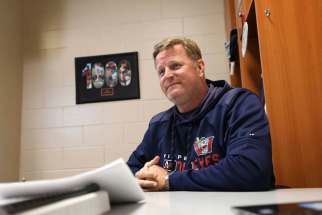Big Fish in friendly pond Baseball — and Winnipeg — in Goldeyes manager's blood
Read this article for free:
or
Already have an account? Log in here »
To continue reading, please subscribe:
Monthly Digital Subscription
$0 for the first 4 weeks*
- Enjoy unlimited reading on winnipegfreepress.com
- Read the E-Edition, our digital replica newspaper
- Access News Break, our award-winning app
- Play interactive puzzles
*No charge for 4 weeks then price increases to the regular rate of $19.00 plus GST every four weeks. Offer available to new and qualified returning subscribers only. Cancel any time.
Monthly Digital Subscription
$4.75/week*
- Enjoy unlimited reading on winnipegfreepress.com
- Read the E-Edition, our digital replica newspaper
- Access News Break, our award-winning app
- Play interactive puzzles
*Billed as $19 plus GST every four weeks. Cancel any time.
To continue reading, please subscribe:
Add Free Press access to your Brandon Sun subscription for only an additional
$1 for the first 4 weeks*
*Your next subscription payment will increase by $1.00 and you will be charged $16.99 plus GST for four weeks. After four weeks, your payment will increase to $23.99 plus GST every four weeks.
Read unlimited articles for free today:
or
Already have an account? Log in here »
Hey there, time traveller!
This article was published 03/05/2019 (2419 days ago), so information in it may no longer be current.
Forget balls and strikes, pitching rotations and batting orders, or even wins and losses. Sure, they’re important matters and constant concerns for the manager of any baseball team, but they won’t be the biggest challenges Rick Forney faces this season. They never are.
The 47-year-old skipper of the Winnipeg Goldeyes said his usual painful goodbyes to wife, Erika, along with their four children: David, 22, Chris, 18, Rebekah, 15 and Erik, 13, before leaving his home in Walkersville, Md., with a one-way plane ticket in hand, knowing it could be close to five months before he sees them again.
“That’s the hardest part, without a doubt,” Forney told me on Friday as we sat down in his office for a nearly two-hour, wide-ranging chat about his club, the league and life, in general.
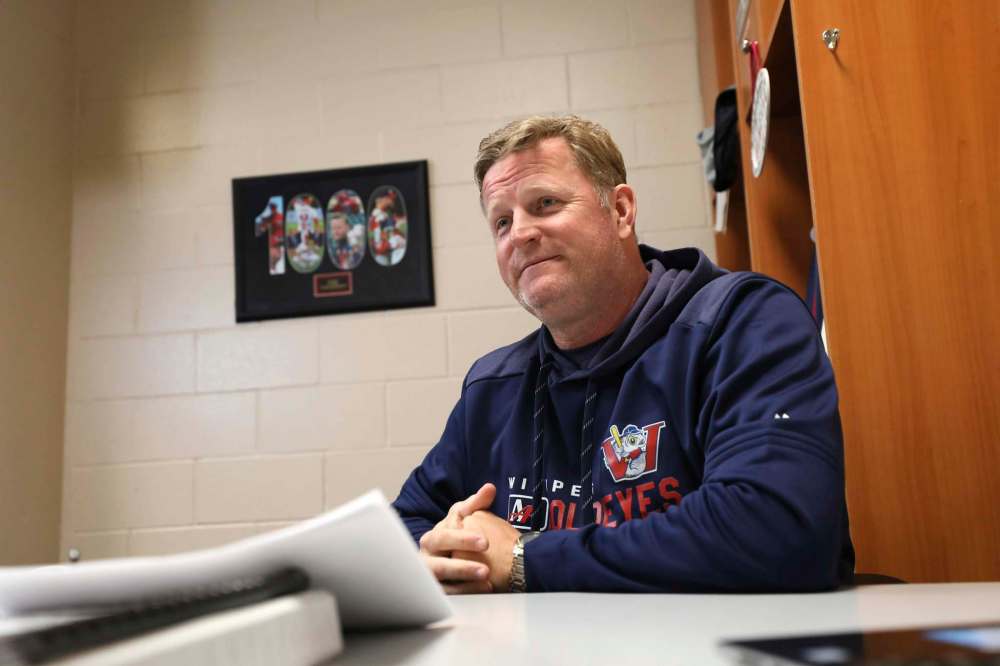
And yet, he keeps coming back for more, set to begin his 14th season as manager and 23rd season overall in Winnipeg. Nearly half his life.
“I love what I do. I love where I’m doing it. And who I do it for,” said Forney. “The only drawback is the distance and time away from home, but there’s not a lot of these jobs that are out there, available. For me, you’ve got a lot invested here. You’ve built a lot here. It’s become a bit part of your life. You just don’t walk away from something like that until you feel your job’s complete.”
The chaotic scene playing out inside the clubhouse Friday was as predictable and familiar as the cool, damp weather outside this time of year: there was a hub of activity as 27 players began filing in ahead of Saturday’s start of spring training, poking their heads into Forney’s den for a quick handshake and hello with the boss.
A few, such as returning vets Josh Romanski and Wes Darvill, were familiar faces, parking themselves on Forney’s couch for an extended catch-up session. The majority were new recruits signed by Forney during a busy off-season, creating a first-day-of-school kind of feel.
“Every year is a new story,” said Forney.
And far from glamorous.
Forney is living out of a hotel more than 2,400 kilometres from home, at the helm of a baseball team with no major-league affiliations, one where the salary cap for the entire 21, 22 or 23-man roster is set at a measly $125,000. His team will play 100 games in about a 110-day span, with few actual days off and dozens and dozens of hours spent going up and down the highways on a bus, travelling to and from the 11 other cities in the American Association.
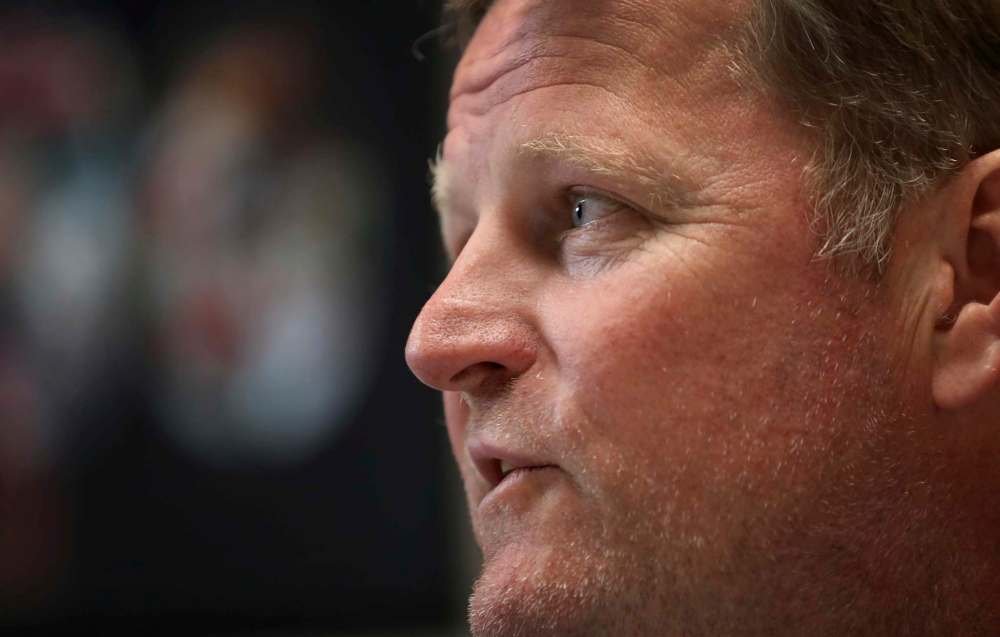
Forney will also spend countless hours trying to put a roster together, due largely to the transient nature of the league, where the majority of players are hoping to spend as little time as possible. What might look like a good roster on paper today could be in shambles by next week as players defect to other leagues, sign contracts with MLB teams or simply decide it’s not worth it and give up their big-league dreams. Not to mention all the competition with rival teams — and rival leagues — for available talent.
Then there’s the various lineup restrictions in play, including a cap on veteran players and a minimum number of rookies. Combine that with trying to keep everyone happy and motivated under the minimal salary cap and it’s a delicate balancing act.
Add it all up and you can see how a team like the Goldeyes can go from back-to-back championships in 2016 and 2017 to a franchise-worse record in 2018 (41-59), far out of the playoff picture.
“You get humbled really quick. It just lets you know, regardless of what club you are, you can be the great Winnipeg Goldeyes or St. Paul Saints, nobody’s immune from having seasons like that. When you get hit with injuries and defections and if you can’t get it replaced, that’s what you look at,” said Forney.
“There’s no exact science to this. We all kind of identify players the same way, but at the end of the day, you’re just kind of rolling the dice and hoping it all works out.”
Forney has come up with plenty of snake eyes along the way. In his 13 seasons as manager, there have been nine playoff appearance and three championships, along with a career record of 698-583.
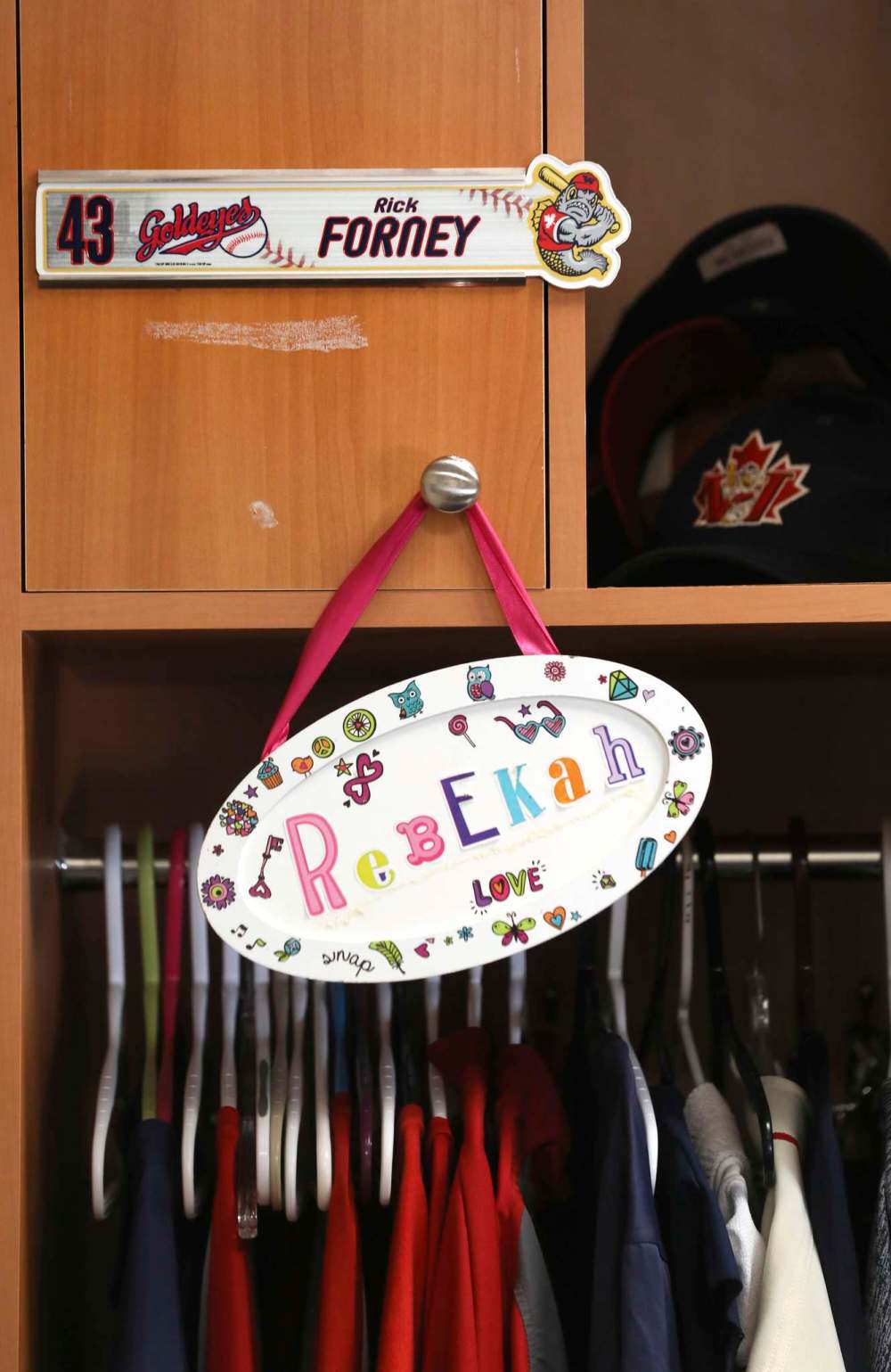
Not too shabby for a guy who arrived in Winnipeg in 1997 near the end of his playing career, knowing nothing about the city except they’d recently lost their NHL team.
“I played Winnipeg on Sega hockey,” he said with a chuckle.
The 1991 draft pick of his hometown Baltimore Orioles never did make the majors, getting as high as Triple A in 1995 before eventually being cut loose and ending up on the independent circuit, which is what landed him in Winnipeg after being recruited by then-manager Hal Lanier. Once his playing career was over, Forney took over as pitching coach before becoming manager in 2006 when Lanier moved on.
Despite last year’s struggles, Forney isn’t putting any more pressure on himself to succeed this year. Although he admits it got the fire burning a little hotter over the winter, in which he juggled player recruitment with giving pitching lessons to youth players at a local baseball training complex in Maryland.
“If I’m winning all the time I still want to win. And if I’m losing I want to find every way I can to rectify the problem,” he said. “Pressure is when you go to school, and you have a big exam, and you didn’t prepare for it. I’m pretty prepared. I couldn’t say the same thing when I took the job years ago, because you don’t really know. It’s hard to know the answers if you don’t know all the questions.”
The teacher was planning to deliver a familiar message to his students Saturday morning when he meets with the entire team before hitting the field for workouts.
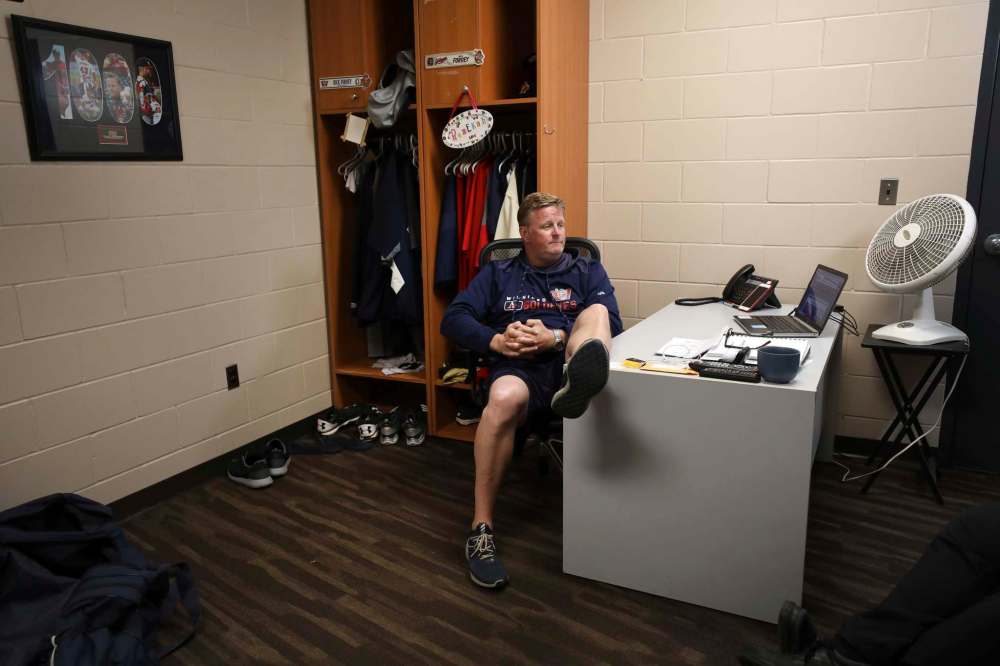
“This isn’t developmental baseball. We’re here to win and we care about winning every night. And the expectation is high,” said Forney.
Surprisingly, he said he’s never had MLB aspirations as a manager, even if opportunities have presented themselves to join organizations in various roles. One example is Fargo manager Michael Schlact, a much less-accomplished manager who joined the Milwaukee Brewers this winter and is now a pitching coach at Triple A.
“Too many months away from home. It’s a different job. When you’re there you’re part of the development program. You have zero control. You have to get approval from five, six different people above you before you can do anything,” said Forney.
That’s not the case here in Winnipeg, where it’s Forney’s show. And he has no plans to bring the curtain down anytime soon.
“I’m still pretty young. I’m only 47. No matter what you’re doing as your job, if you’re not enjoying it you’re not going to continue doing it,” he said.
It helps that he’s developed a real soft spot for his home away from home, creating a sense of family within the organization and community that helps offset the sting of what he’s missing.
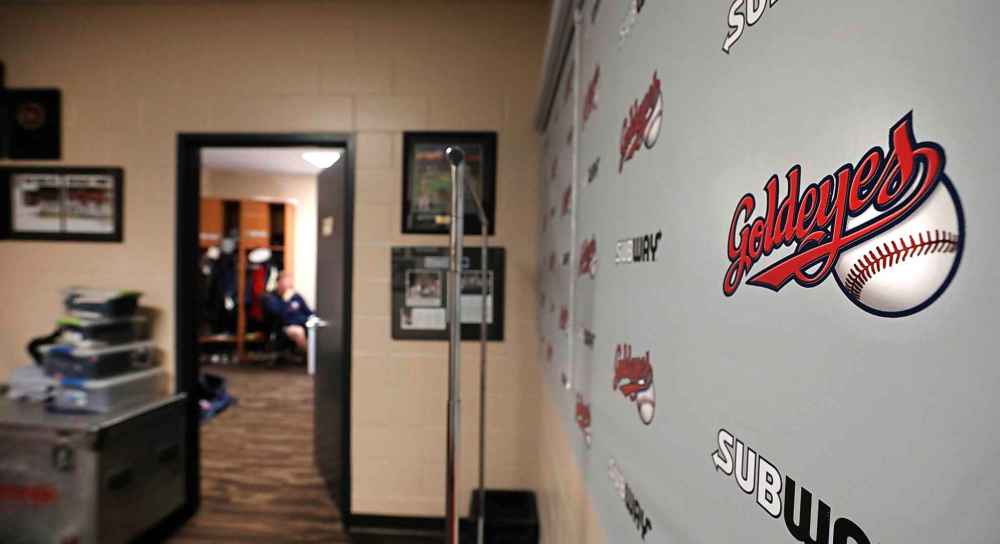
“People are very welcoming here. Very friendly. I’ve enjoyed every bit of it. I love it here,” he said.
mike.mcintyre@freepress.mb.ca
Twitter: @mikemcintyrewpg

Mike McIntyre grew up wanting to be a professional wrestler. But when that dream fizzled, he put all his brawn into becoming a professional writer.
Our newsroom depends on a growing audience of readers to power our journalism. If you are not a paid reader, please consider becoming a subscriber.
Our newsroom depends on its audience of readers to power our journalism. Thank you for your support.






